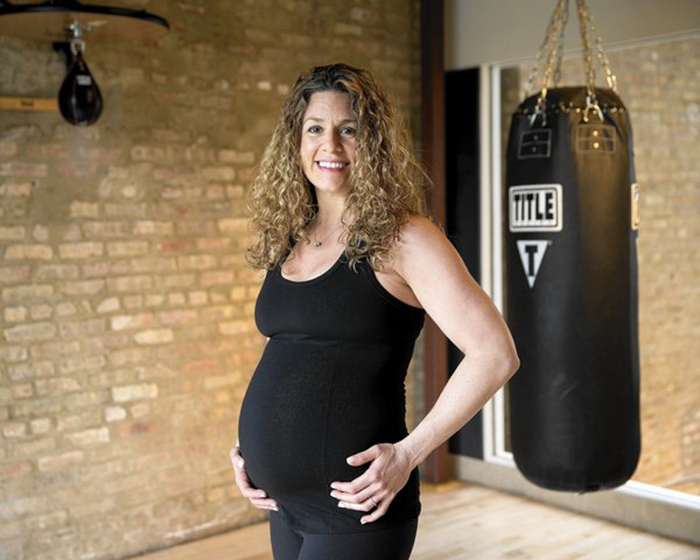When you’re pregnant, you may feel you have the perfect excuse to take time off from the gym. But this couldn’t be further from the truth.
“No one would think of running a marathon without training for it, and it always astounds me when women try to go through labor and delivery without training,” said Dr. Mary Jane Minkin, clinical professor in the department of obstetrics, gynecology and reproductive sciences at the Yale School of Medicine. “I’ve run plenty of half-marathons, and labor was tougher than that.”
Still, exercise regimes can’t and shouldn’t stay the same when you’re pregnant — and these experts will tell you what you should and shouldn’t do.
Do exercise. As long as you were exercising before you became pregnant, you should continue. If your body is used to moving and sweating, you could continue, says Julie Valenti, area group fitness manager for Equinox’s Dallas and Chicago locations who is pregnant with her first child.
Don’t compress your abdomen. You should continue to work your core muscles, but don’t do anything that compresses your abdomen, like crunches or traditional sit-ups. Instead, focus on stabilizing exercises.
Try getting on your hands and knees and extending your right arm forward and your left leg back. Sustain this shape for 3-5 breaths and then change sides. As you do this, feel the deeper muscles of your abdomen support the weight of your front body and, at the same time, activate your lower back muscles by creating length in your spine, said Desi Bartlett, creator of the Prenatal Yoga DVD.
Don’t do deep stretches. During pregnancy, your body produces higher levels of a hormone called relaxin. Relaxin helps soften muscles and ligaments in your pelvis to allow for childbirth. Unfortunately, relaxin does not pick and choose which joints it affects, and it’s normal to feel your shoulders, ankles and wrists are looser than normal. Try not to move into the deepest point of any stretch.
Instead, listen to your body — and when it feels as if you are at the deepest point in a stretch, pull back the effort about 10 percent, said Bartlett.
Do swim. The main limitation on exercising is that you don’t want to get overheated, which is the major reason not to even think about a marathon late in pregnancy. Swimming is a perfect exercise when you’re pregnant because it gives you a great way to work out without getting overheated.
Don’t get breathless. It’s important to get your blood circulating. But it’s not necessary to work out so hard that you lose your breath or go anaerobic. If you are depleted of oxygen, so is the baby, said Valenti.
Do run. Running is fine, but if you start cramping, then slow down and walk briskly. In general, women can tell how they’re feeling even without counting their pulse, and if they’re getting too winded or too hot, they just need to slow down, said Minkin.
Don’t start something new. If you’ve never done kickboxing before, now is probably not the time to start. Your body has enough change going on internally and externally, and introducing new movements could do more harm than good, said Valenti.
Don’t overdo it. Lots of fun side effects come with being pregnant, including a higher internal body temperature and a 40 percent to 50 percent increase in blood flow.
You may get hotter than you used to get, and your heart rate may elevate faster than in the past. It takes less and less effort from you to make your body work hard. Slow down when you need to, and stay hydrated, said Valenti.
Source: Chicago Tribune
June 18, 2014
. Photo by Andrew A. Nelles, Chicago Tribune
http://www.chicagotribune.com/health/sc-health-0618-fitness-pregnancy-20140618-13,0,5353175.story











